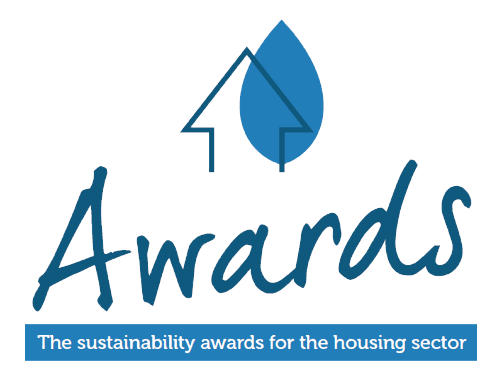
Recognising the best in social housing
This is a difficult time for the social housing sector. With uncertainty in the air over Brexit following hard on the heels of years of austerity and funding cuts they are working in the midst of a perfect storm with London suffering a serious housing crisis. Now would hardly be the time to be excited about awards but if the social housing sector is to move forward and overcome the challenges of the next few years they have to find and nurture the best and what better way to do that than through awards.
Steve Walker, consultant and Head Judge at the National Housing Awards 2016 said last month “Winning awards really does make a difference – it motivates staff and releases discretionary effort, it can legitimise good organisations to do business with. It lends credibility to a housing association’s professionalism.”

National Housing Awards
Launched in 1997 the UK Housing Awards were the first to recognise achievement in social housing. They remain the most respected awards in the sector and recognise the ingenuity, creativity, passion and results of housing organisations across the UK.
In 2015 the awards launched a new judging process in which all shortlisted organisations present to the judges resulting in record numbers of entries. The 2016 entries will open on the 16th October and full details will be on this page. The winners will be announced at a ceremony at the Lancaster London Hotel on the 26th April 2016.

SHIFT Awards
The SHIFT Awards are the UK’s sustainability awards for social landlords. These awards recognise and celebrate outstanding sustainability driven projects and leadership within social housing.
Not confined to the building industry the SHIFT awards also distinguish social landlords who have demonstrated leadership in sustainability and have achieved significant operational cost savings through environmental improvements.
As housing associations develop new business models in response to social, political, regulatory and economic realities whilst also continuing to deliver good quality homes that are energy efficient and affordable the awards reward and recognise the hard work involved.
The awards celebrate those organisations that are improving the quality of homes with measureable outcomes. And in so doing they allow all parts of the sector access to those ideas that are at the forefront of sustainable social housing, either through best-practice approach or new business models.
Awards are vitally important in promoting the best of an industry, as Steve Walker says, “Trust me, winning awards, showcasing and being proud of what you do, really does make a difference. It motivates staff and releases discretionary effort. For customers it can legitimise good organisations to do business with. To politicians, the media, it adds depth to housing associations’ professionalism, showing the sector is confident enough to showcase itself.”
What makes a winning Award?
For companies who want to put themselves forward for an award the following tips can help formulate a great entry.
- Visual examples will always help entries come to life. They don’t have to be glossy professional shots, even adding screen grabs, phone photographs or floor plans can add depth to your words
- Be as explicit as possible, the judges don’t know anything about your project so try not to assume knowledge and state the obvious
- Get a third party to check your entry and ask for honest feedback, maybe a partnership organisation or stakeholder – they may spot a mistake or help you to highlight a key point you missed
- Ask someone who has been directly impacted in the project to contribute to the entry – they have a different take on the project and their personal anecdotes bring a project to life and show its real impact
- If you make a statement, make sure you have the evidence to back it up – never exaggerate!
- Research who will be judging the awards – the National Housing Awards are shortlisted by an expert panel and RSL / RP / HA resident judges – tailor your project to the key interests of the judges, that way it will speak to them.
- Make sure you read the submission rules carefully, after all the hard work you don’t want to be disqualified!

Leave a comment